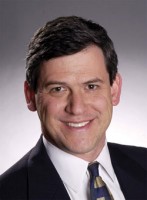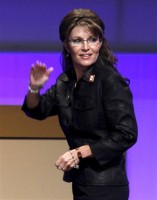 Twenty years ago, I was able to go to college thanks to student loans, Pell Grants, and parents who worked really hard to help me become the first person in our family to go to college. One of my favorite memories of Washington is the time I got to thank former Senator Clairborne Pell for championing an idea that helped the kids of working class families afford college, too (Pell, by the way, was one of the most decent men to ever serve in Congress).
Twenty years ago, I was able to go to college thanks to student loans, Pell Grants, and parents who worked really hard to help me become the first person in our family to go to college. One of my favorite memories of Washington is the time I got to thank former Senator Clairborne Pell for championing an idea that helped the kids of working class families afford college, too (Pell, by the way, was one of the most decent men to ever serve in Congress).
So, I’ve always viewed with skepticism any plans to alter a college loan system that has helped millions of Americans afford college since the system was instituted in the mid-1960s. I even questioned the Clinton Administration’s plan to institute a direct-lending program in the 1990s, to bypass banks as middlemen and go directly to students through universities. Now, of course, Democrats are preparing to finish the job Clinton started and bypass banks altogether. President Obama first proposed the idea as a candidate more than two years ago, and, as Ed points out, Congressman George Miller is introducing legislation to make direct-lending king.
Ed’s idea that this represents a government takeover of student loans overlooks the minor point that taxpayers already subsidize student loan interest rates and guarantee the loans, whether through direct lending or private firms. It’s like the people who complain, “Get the government out of my Medicare.” The reason it is a risk-free cash cow for private lenders is because the government pays 97 percent of the principal and interest should a student default — and lenders are still able to keep up to half of whatever they are able to get from students AFTER being repaid by the government. Oh, and private lenders also charge higher interest rates than the government. Read More
 A shout out to my friend and former Clinton foreign policy speechwriting colleague
A shout out to my friend and former Clinton foreign policy speechwriting colleague  A guest post today from my colleague
A guest post today from my colleague  Before she met and
Before she met and  By this point, America is probably about Sarah-Palined out, at least for this round. Everyone has an opinion on her announcement, and her future. I find the most interesting pieces over the past few days have come from women — like
By this point, America is probably about Sarah-Palined out, at least for this round. Everyone has an opinion on her announcement, and her future. I find the most interesting pieces over the past few days have come from women — like  Much chatter today about Governor Palin’s surprise
Much chatter today about Governor Palin’s surprise